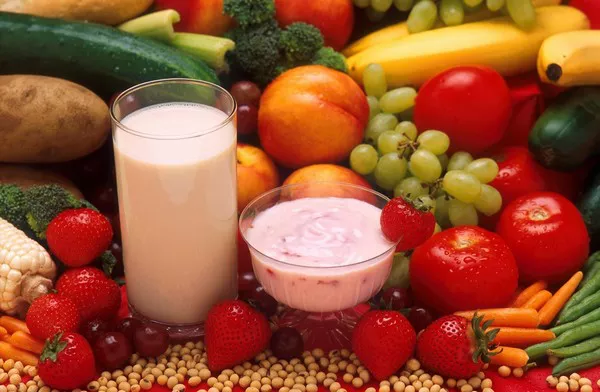Protein is an essential nutrient that plays a crucial role in maintaining overall health and well-being. Incorporating protein-rich foods into your diet is essential, and seeds are an excellent source of plant-based protein. In this guide, we’ll explore a variety of seeds that are rich in protein, highlighting their nutritional benefits and versatile uses. Whether you’re a vegetarian, vegan, or simply looking to boost your protein intake, these nutrient-packed seeds can be a valuable addition to your diet.
5 Types of Seeds Are Rich in Protein
1. Chia Seeds: Tiny Powerhouses of Protein
Nutritional Profile: Chia seeds are renowned for their impressive nutritional profile. They are an excellent source of complete protein, containing all nine essential amino acids that our bodies need for optimal functioning.
Protein Content: Per ounce, chia seeds provide approximately 4.7 grams of protein. This protein content, combined with their fiber and healthy fats, makes them a satisfying and nourishing addition to meals and snacks.
Culinary Uses: Chia seeds can be incorporated into a variety of dishes, including smoothies, yogurt, oatmeal, and baked goods. When mixed with liquid, they develop a gel-like texture that can be used to create chia puddings and thickening agents for recipes.
2. Hemp Seeds: Complete Plant Protein Source
Protein Profile: Hemp seeds are considered a complete protein source, as they contain all essential amino acids. They also boast a favorable ratio of omega-3 to omega-6 fatty acids, contributing to heart health.
Protein Content: Approximately 3 tablespoons of hemp seeds provide around 10 grams of protein. This makes them an ideal choice for those seeking a convenient and versatile protein boost.
Culinary Applications: Hemp seeds have a mild, nutty flavor that complements various dishes. They can be sprinkled over salads, added to smoothies, mixed into yogurt, or used as a topping for soups and cereals.
3. Pumpkin Seeds (Pepitas): Plant-Based Protein Powerhouses
Protein and Nutrients: Pumpkin seeds, also known as pepitas, are not only rich in protein but also packed with essential nutrients such as magnesium, zinc, and iron.
Protein Content: One ounce of pumpkin seeds provides approximately 7 grams of protein. These seeds offer a satisfying crunch and are a delightful addition to both sweet and savory dishes.
Snacking and Cooking: Pumpkin seeds can be enjoyed as a standalone snack, roasted with your favorite seasonings. They can also be used to add texture and flavor to salads, granola, and baked goods.
4. Sunflower Seeds: Wholesome Protein-Rich Option
Protein and Vitamin E: Sunflower seeds are known for their high vitamin E content, which contributes to skin health and antioxidant protection. They also provide a respectable amount of protein.
Protein Content: One ounce of sunflower seeds offers around 5.5 grams of protein. These seeds make for a convenient and satisfying snack that can help keep your energy levels stable throughout the day.
Culinary Creativity: Sunflower seeds can be enjoyed on their own or added to trail mixes. They can be sprinkled over salads, used as a crunchy topping for yogurt, or incorporated into homemade energy bars.
5. Flaxseeds: Nutrient-Rich Protein Source
Omega-3 Fatty Acids: Flaxseeds are prized for their omega-3 fatty acid content, which supports heart health and brain function. They also contain a decent amount of protein.
Protein Content: In a 1-ounce serving, flaxseeds provide around 5.2 grams of protein. These seeds have a mild, nutty taste that can enhance the flavor and nutritional value of various dishes.
Versatile Uses: Ground flaxseeds can be added to smoothies, yogurt, or oatmeal for a protein and nutrient boost. They can also be used as an egg substitute in vegan baking, thanks to their natural gelling properties.
See Also: What Fruits Have Lots of Protein: A Nutrient-Rich Guide
Conclusion
Incorporating protein-rich seeds into your diet is a delicious and wholesome way to meet your nutritional needs. Chia seeds, hemp seeds, pumpkin seeds, sunflower seeds, and flaxseeds are all excellent sources of plant-based protein that offer a variety of health benefits. Whether you’re looking to enhance your protein intake, follow a plant-based lifestyle, or simply add more nutrient-dense foods to your meals, these seeds can be easily integrated into a wide range of dishes. From smoothies to salads and baked goods, the versatility of these protein-packed seeds allows you to enjoy their nutritional goodness in creative and satisfying ways.


